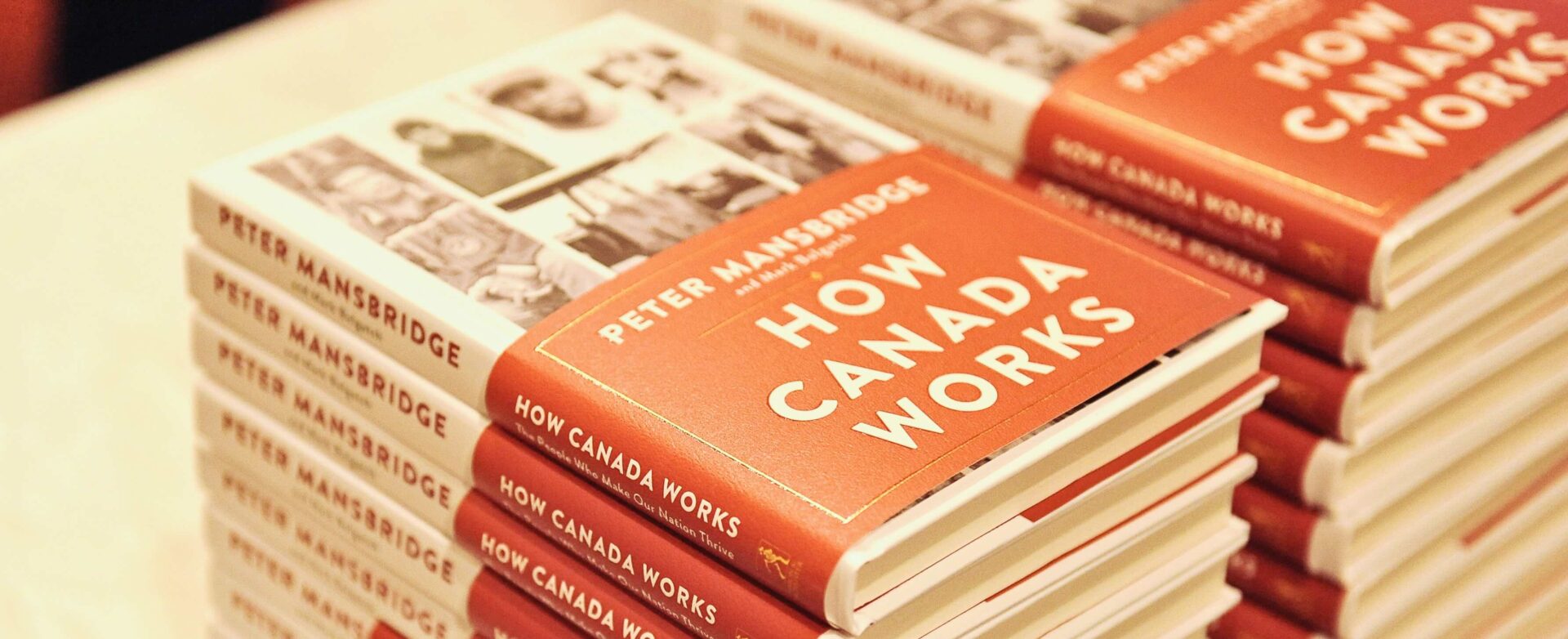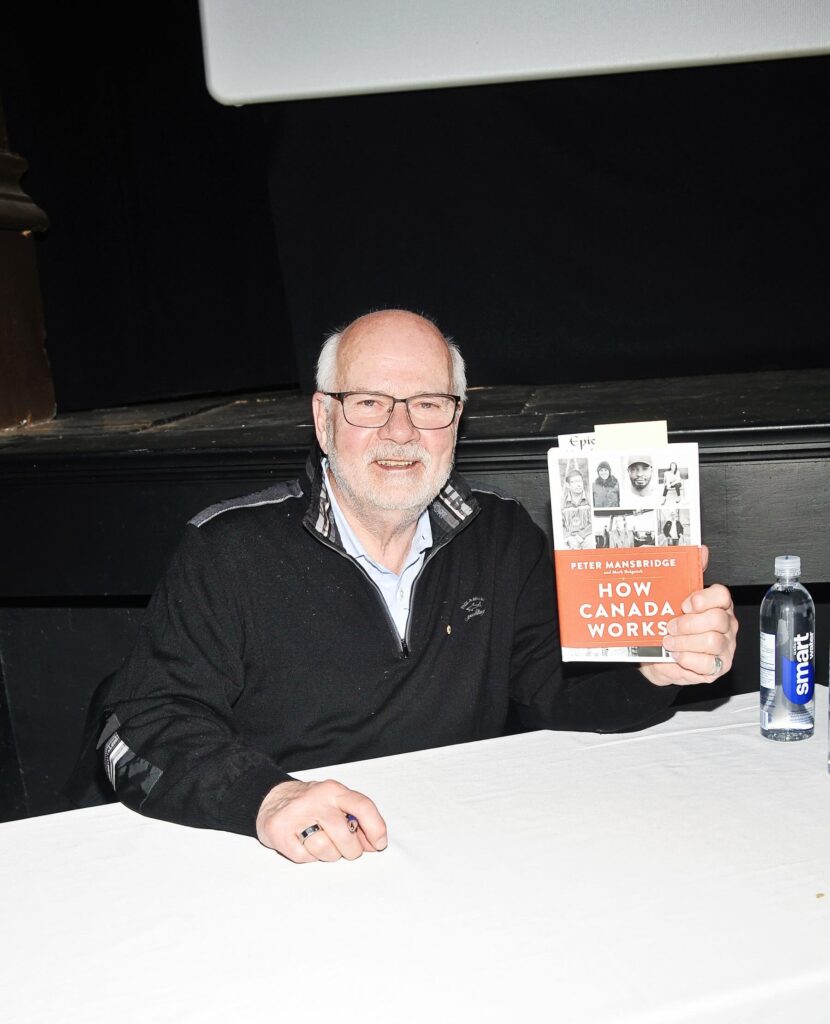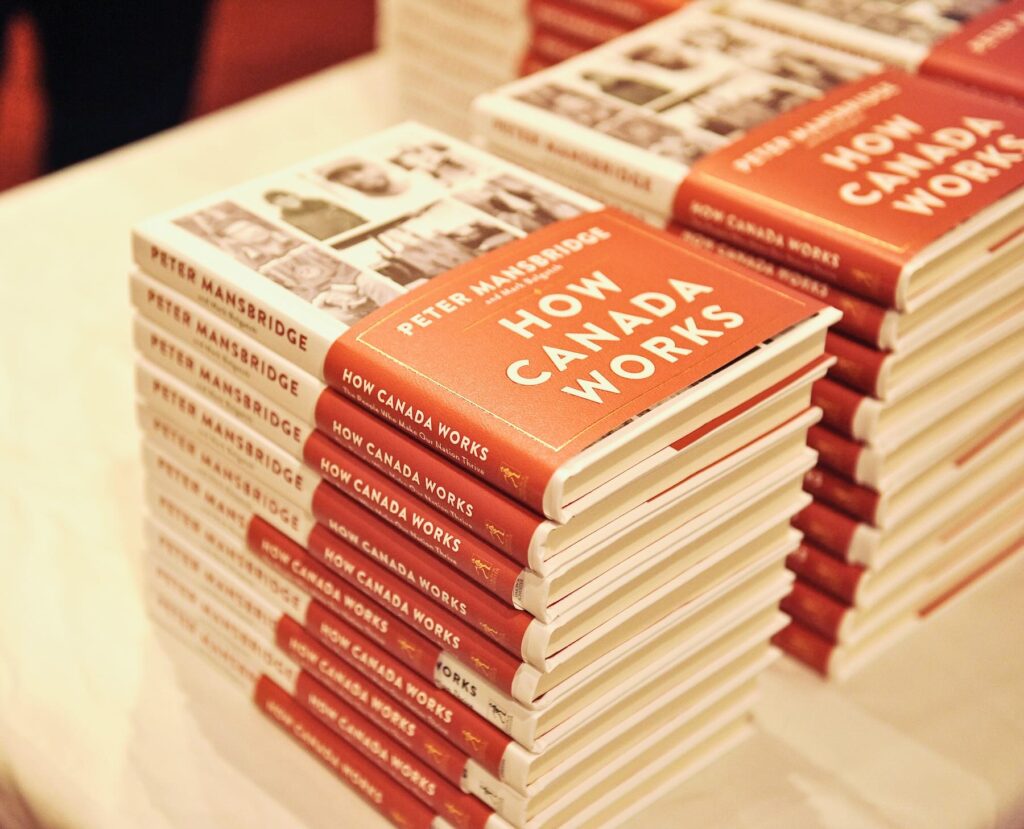Peter Mansbridge celebrates the fascinating, critical jobs Canadians do

The former anchor of CBC News’ The National and co-author of How Canada Works was a special guest of Hamilton’s gritLIT festival.
The man who once had one of the most visible jobs in the country is fascinated by the invisible and unsung jobs that are the backbone of Canada.
Peter Mansbridge, who was chief correspondent and anchor of CBC News’ flagship broadcast The National for 28 years before retiring in 2016, was a special guest of Hamilton’s literary festival gritLIT on Thursday night.
In a wide-ranging conversation, Mansbridge was interviewed by author, culture writer and CBC host Elamin Abdelmahmoud.
He is co-author of How Canada Works: The People Who Make Our Nation Thrive, a collection of personal stories from all across Canada that shine a light on the regular people who take pride in a job well done.
Mansbridge told a large crowd at the Playhouse Cinema that he and former CBC producer Mark Bulgutch came up with the book idea two summers ago while listening to the news and a debate about whether Canada is broken.

After spending a career meeting people in small towns and big cities across the country, it occurred to Mansbridge that “our country works because of the jobs we don’t think about. If they didn’t exist, we’d be in real trouble.”
So the book includes the stories of more than two dozen such jobs – air traffic controller, farmer, parole officer, school principal, midwife, funeral director – and the people who choose to do them.
In a polarized world, where the focus is often on what divides us, Mansbridge said understanding and appreciating each other’s jobs gets us to a place where we can see what we have in common and how our lives intersect.
“We don’t have to agree with each other about politics, but we need to appreciate how we each contribute.”
Related stories
Margaret Atwood kicks off gritLIT’s 20th festival
Mansbridge said he and Bulgutch “didn’t put a lot of deep thought” into the jobs they chose to focus on but they did agree not to include celebrities, politicians or activists. You won’t find any journalists either. Mansbridge said that seemed just too easy, even though he does feel the growing lack of trust in journalists is concerning.
He began his career covering local politics in Churchill, Manitoba and over the course of five decades, he reported on 14 federal elections, hosted eight Olympic ceremonies and completed an estimated 15,000 interviews, including with some of the most powerful and well-known people in the world
Mansbridge, 75, received more than a dozen national awards for broadcast excellence, including a lifetime achievement award from the Academy of Canadian Cinema & Television. He is a distinguished fellow of the Munk School of Global Affairs & Public Policy at the University of Toronto and the former two-term chancellor of Mount Allison University. In 2008 he was made an Officer of the Order of Canada—the country’s highest civilian honour.
And he’s written four bestsellers.
So while it’s all worked out well for him, Mansbridge was asked what would have been his top three career choices had he not gone into news. A turn on stage with the late Gord Downie showed him he would have loved to have been a rock star and his lifelong love of the Toronto Maple Leafs means he’s dreamed of holding the Stanley Cup over his head while skating in a blue and white jersey.
But ultimately, Mansbridge, who didn’t finish high school or attend university, says he wishes he had pursued a law degree. But then again, his 10 honorary doctorates (including one from McMaster University in 2017) may equal a real one, he joked.

“There is something in every one of these stories that inspires me,” he said. When he called a high-rise window washer in Edmonton, a job he’s fascinated by because Mansbridge says he can barely ride an elevator, the man initially didn’t believe one of Canada’s most well-known journalists was on the other end of the phone.
But as he talked more and more about his job, which requires him to scale down buildings with only a rope, the pride he takes in his work became more apparent.
“All the people we talked to love what they do and wouldn’t trade it for anything.”












